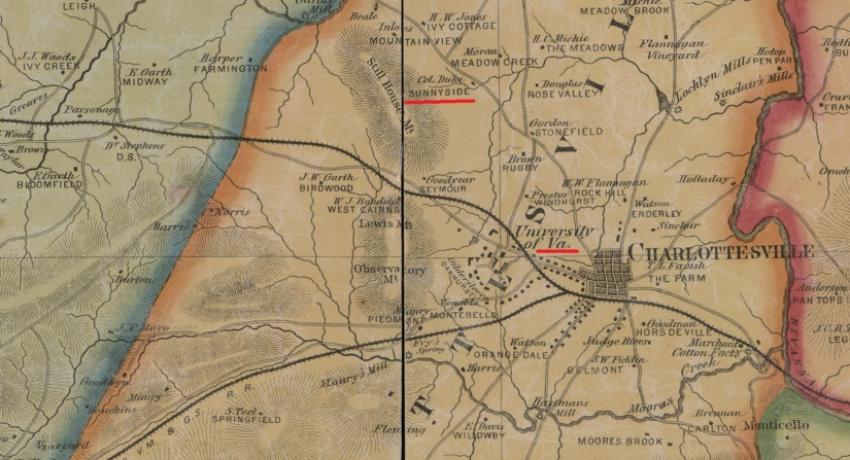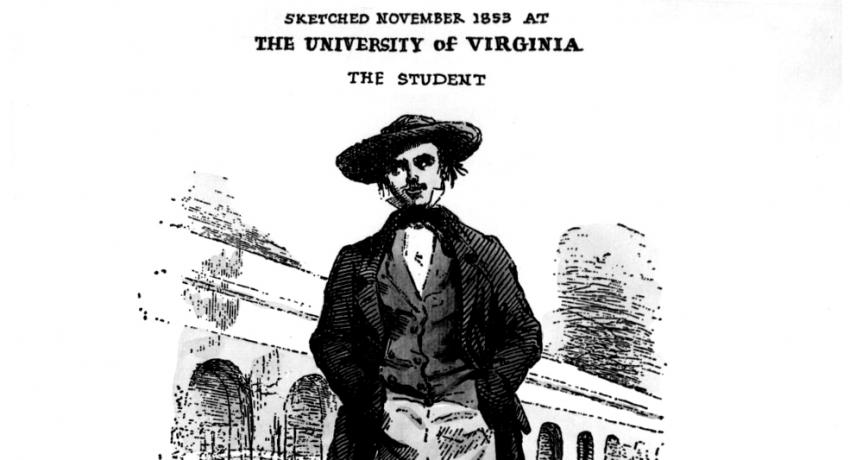This page features interpretive essays and blogs addressing the University of Virginia School of Law’s connections to slavery. We offer a sampling of works authored by members of the UVA Law Library team as well as graduate student and faculty colleagues associated with allied projects around the University, including Jefferson’s University...the Early Life (JUEL). We invite scholars and researchers who utilize the resources on this website to publish preliminary work here.
Please use the Contact Us page to submit a piece for potential inclusion.
This essay, written in observation of Liberation and Freedom Day — commemorating the arrival of Union troops and the liberation of 14,000 slaves in Charlottesville on March 3, 1865 — tells the story of Jane, an enslaved woman who labored as a cook on the Sunnyside property of her enslavers, the Duke family. Jane chose to leave Charlottesville shortly after Union cavalry arrived.
This essay examines interactions between UVA faculty and the enslaved community on Grounds focusing on two UVA Law professors who served as faculty chairmen during the antebellum period. These professors brought their legal expertise to this role in their efforts to preserve order on Grounds and, in so doing, maintain the subjugation of enslaved workers.
Essays from Allied Projects
This essay focuses on a letter from UVA student L.J. Bell addressed to John B. Minor with a question about the legality of slave abuse. Three landmark judicial opinions establish the legal context for this issue in Virginia which effectively privileged the economic interests of enslavers over the safety and humanity of the enslaved.
This essay details the disjuncture between John Minor’s public stance toward slavery as a moral abomination and his personal participation in enslaving dozens of individuals on his personal estate.
This essay contains a violent account in the faculty chairman journals of two UVA Law students beating an enslaved man named Fielding held in bondage by UVA professor Charles Bonnycastle. Bonnycastle intervened to protect Fielding before the case was brought before the Faculty, ultimately resulting in a ruling in favor of the two Law student assailants.
This essay chronicles the evolution of UVA Law Professor James P. Holcombe from the scion of a pro-emancipation Virginia family to a leading intellectual and political figure in defense of slavery and secession.


